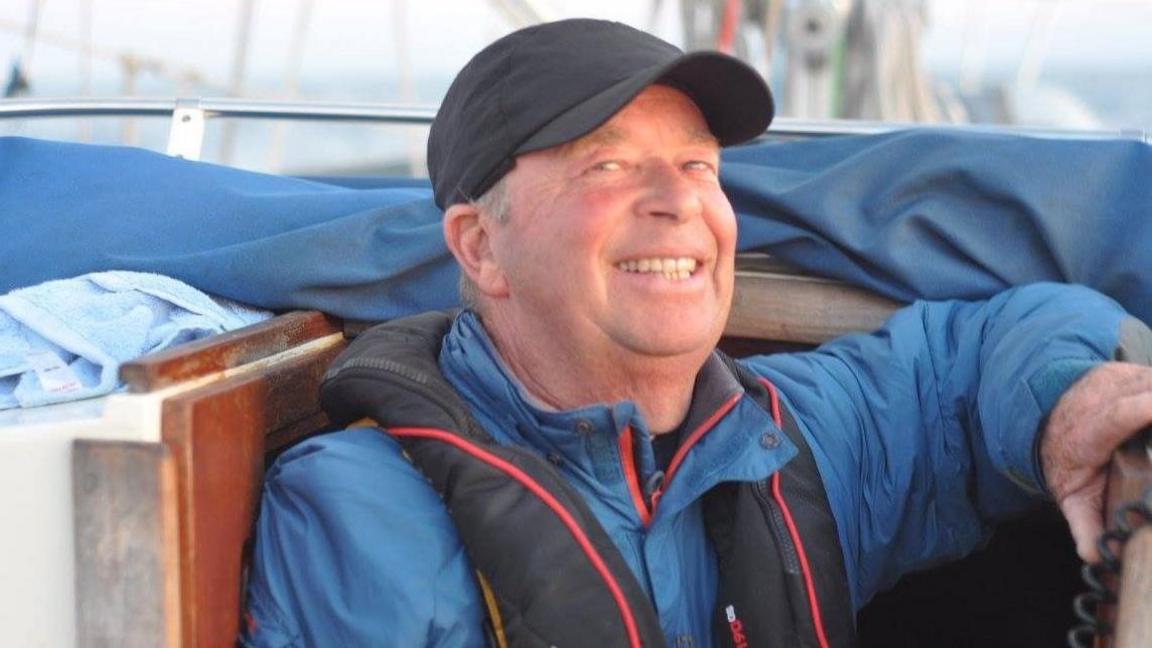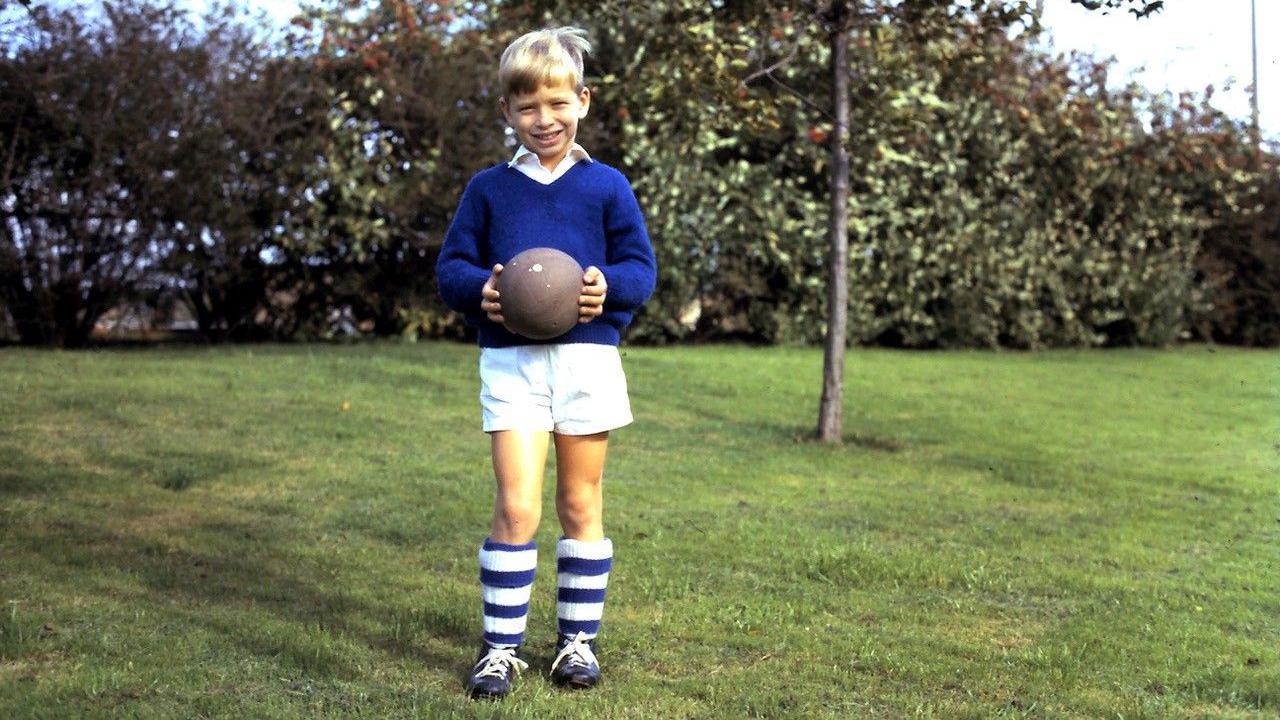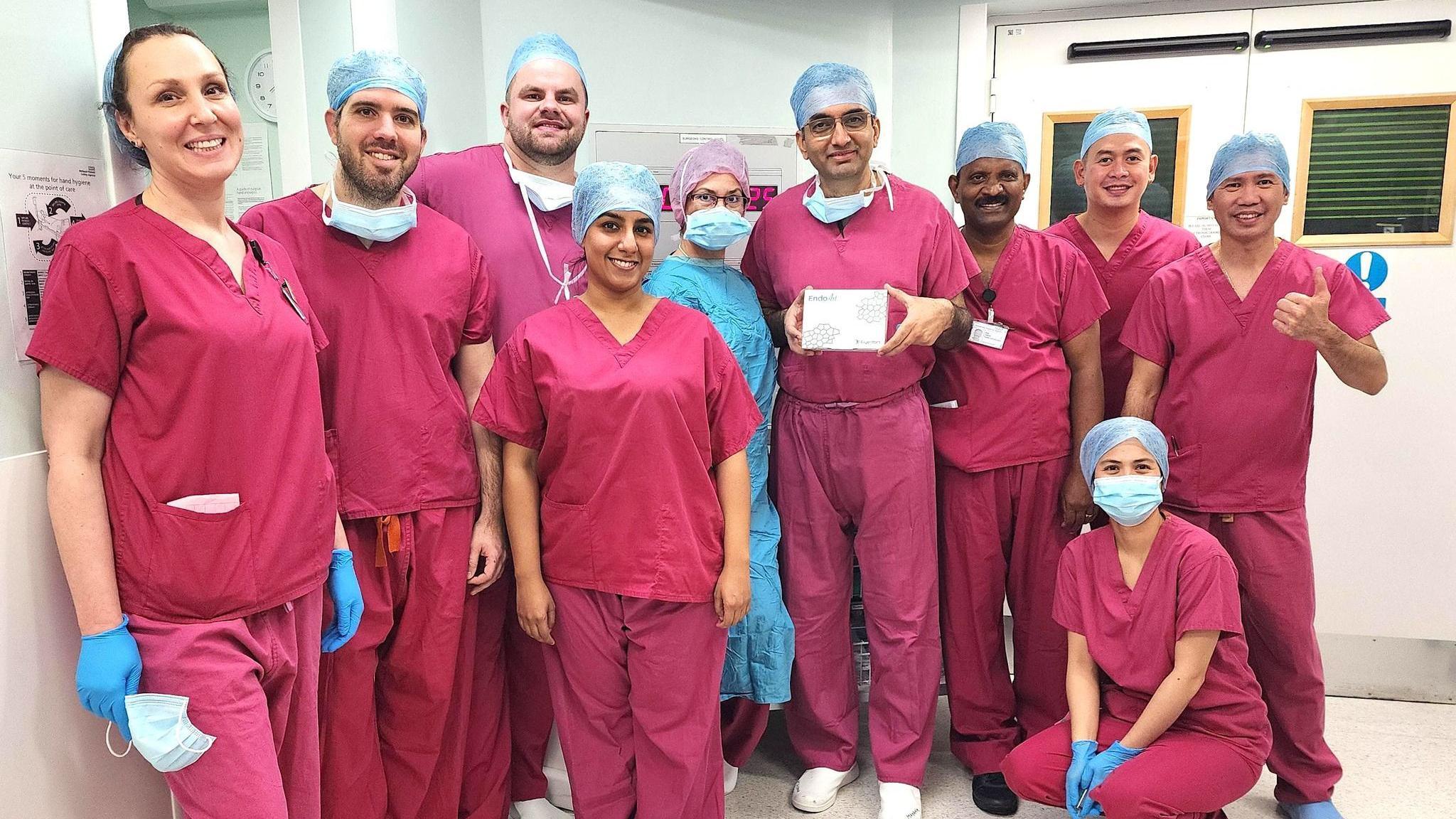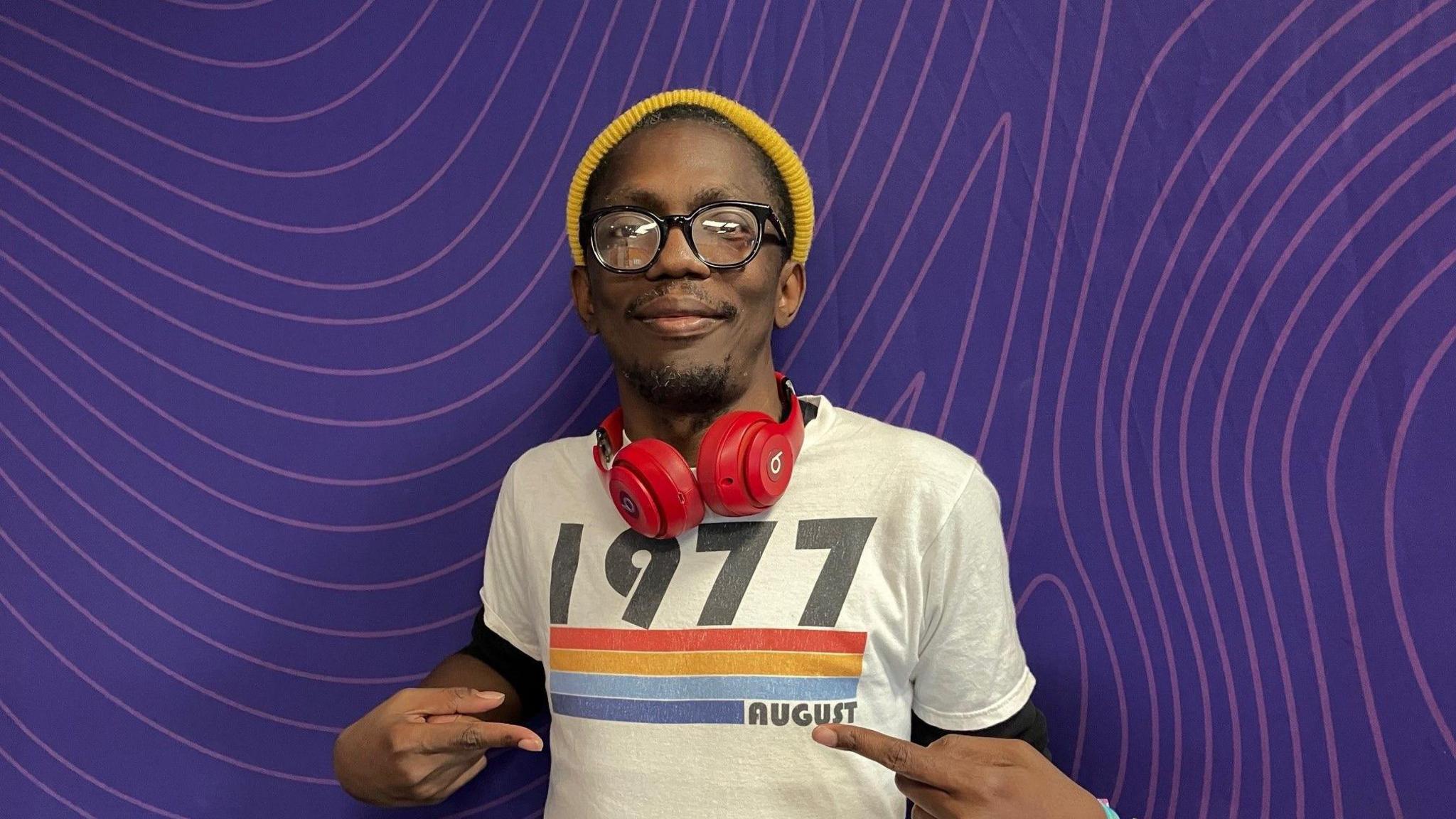'My kidney transplant story 40 years on'

Richard Ayres said it was "amusing" to see himself featured in a documentary about the organ donation filmed more than 40 years ago
- Published
A transplant recipient from West Sussex has seen himself in a public information film for the first time since it was made more than 40 years ago.
Richard Ayres from Bognor Regis was featured in a half-hour documentary, Towards A Better Life - A Gift Of Life, which discussed the organ donation system and how recipients could still live a healthy life following a transplant.
The 66-year-old had kidney failure of unknown cause and said that since the operation, he has always celebrated having a second chance in life.
"I remember doing the interview but I don't think I ever saw the final film – it's so amusing to see it," he said.
Mr Ayres was filmed by the Central Office of Information's (COI) scientific division in the early 1980s before the organisation closed in 2012.
One segment showed him taking part in a radio phone-in about transplants at BBC Radio Solent.
"I'm surprised to see how fit and youthful I was," Mr Ayres added. "I remember doing the interview in Southampton with BBC South and feeling nervous.
"The style of documentaries has changed so much since then, it was very sober and informative."

Mr Ayres as a youngster at primary school in the football team before showing signs of illness
The documentary explores medicine and public attitudes, featuring interviews with people on dialysis experiencing kidney failure, the family of an organ donor, and the work of the national organ matching team in Bristol.
At the time, there were about 1,000 transplants a year and about 2,500 people on the waiting list.
From 2024 to 2025, more than 4,500 transplants have been carried out a year and about 8,000 people are on the waiting list, according to NHS Blood and Transplant.
Surgeon Dr Maurice Slapak, who also founded the World Transplant Games in 1978, performed Mr Ayres' first transplant and and oversaw the second.
Mr Ayres went on to work in local government for 35 years, completed a master's degree, sailed around the world in the 1989 Fastnet race as part of a transplant team, and sailed around the UK.
'Choice to live'
"I feel incredibly grateful to have had the transplants," he said.
"I always think of the donor family who in their hours of pain and loss gave people the gift of life.
"The doctors don't really know exactly why some transplants last and others don't.
"I'm lucky to still have mine. It has allowed me the choice to live a fulfilling life with no constraints."
Mr Ayres added he encouraged people to support organ donation to help "change someone's life".
Chris Callaghan, a consultant kidney and pancreas transplant surgeon and NHS Blood and Transplant's clinical lead for organ utilisation, said: "Richard's story shows the power of organ donation – he has led a full life and can look back at himself as a young transplant recipient 40 years ago.
"Sadly, as was the case in the 1980s, people still die every day in need of a transplant."
Follow BBC Sussex on Facebook, external, on X, external, and on Instagram, external. Send your story ideas to southeasttoday@bbc.co.uk , external or WhatsApp us on 08081 002250.
Related topics
- Published20 March

- Published17 June
